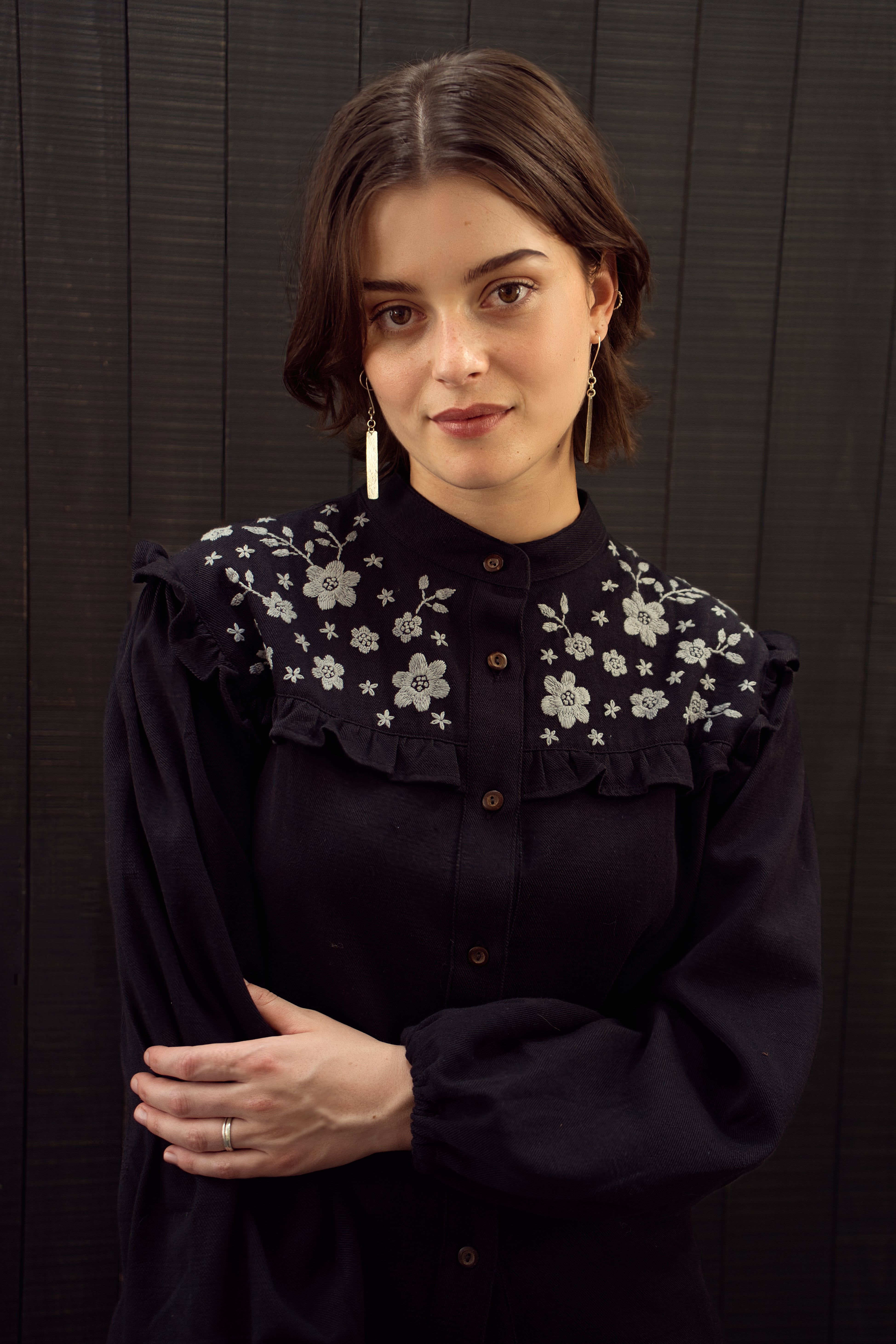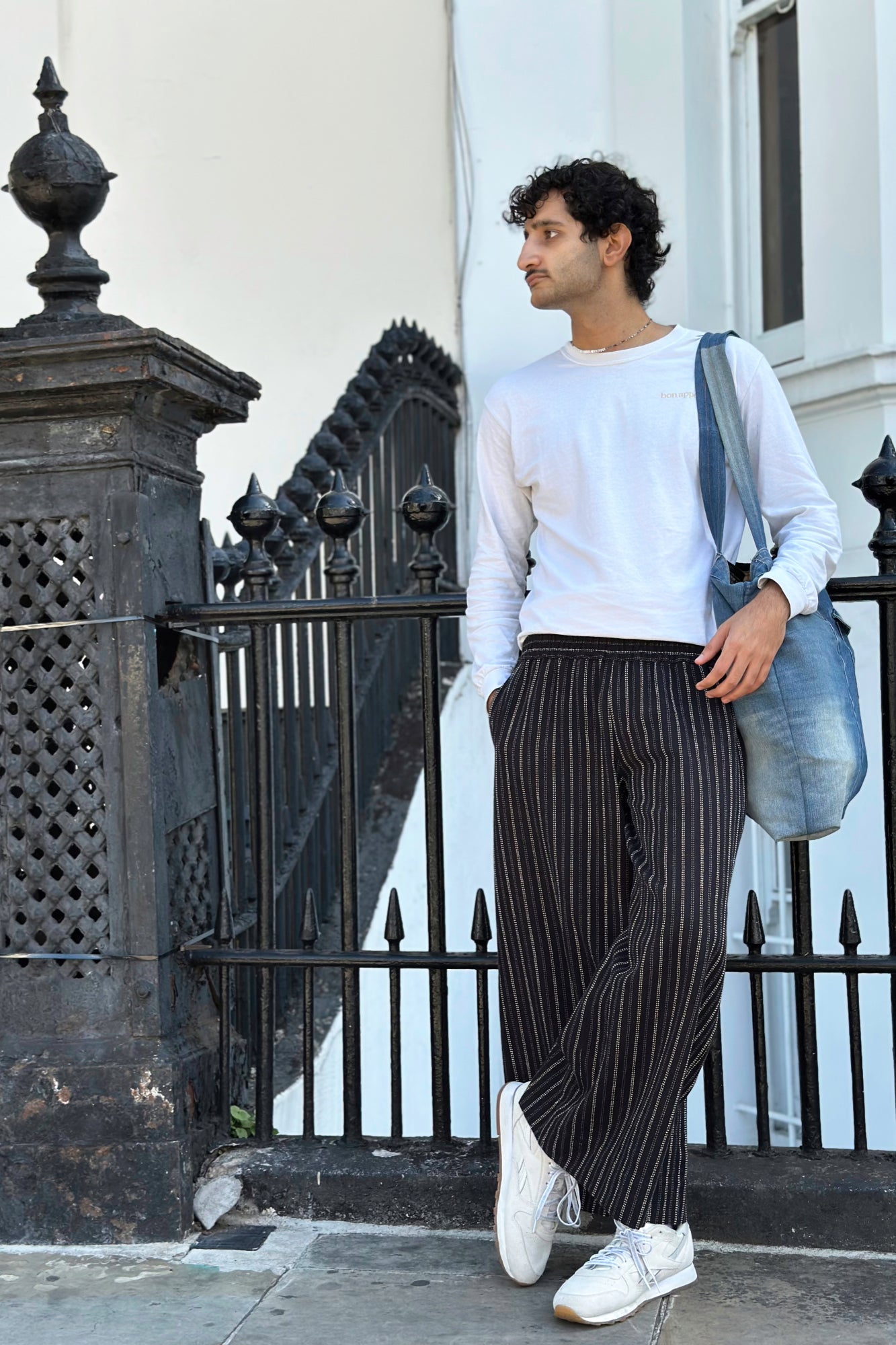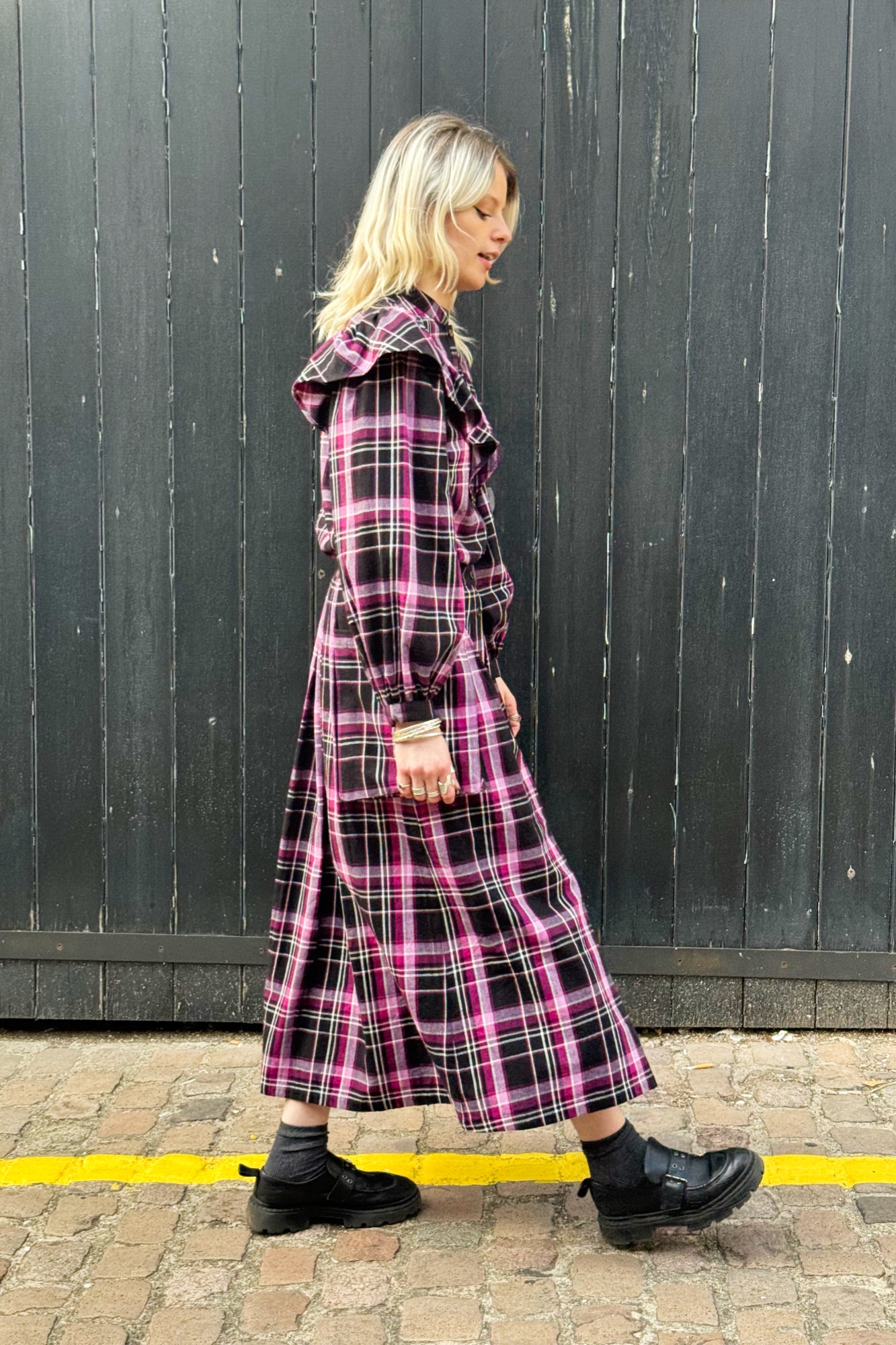Not long ago, Saturday afternoons meant lunching with friends and browsing the high street for fun – fashion was a social ritual as much as a self-expression. Today, it remains a source of creativity and identity, but the industry itself is in crisis. Global production has spiralled far beyond demand, with fast fashion now operating at breakneck, near-instant speed.
The result? Ninety-two million tonnes of waste is generated annually, contributing to 10 per cent of global carbon emissions. In the UK alone, 350,000 tonnes of clothing end up in landfill each year.
Despite growing support for slower, more ethical alternatives, ultra-fast fashion giants like Shein and Temu continue to grow. In 2024, Shein’s UK revenue surged to £1.55bn in 2023, while high-street mainstay Primark reported £9.45bn. Yet amidst this overproduction, a quiet resistance is building. Second-hand fashion sales reached £2.4bn last year, as nearly half of UK adults bought pre-loved items. Interest in handmade, made-to-order garments and clothing with genuine provenance is on the rise, with more people also turning to traditional skills like sewing in response to economic hardship.
While luxury fashion has got the memo and started to embrace craft and heritage, there is a real need for more affordable alternatives. One person who is trying is the founder of sustainable fashion brand People Tree and the Fashion Declares organisation, Safia Minney, who has now launched a new slow-fashion label Indilisi.

The brand is almost a second coming for the environmental activist, who founded People Tree in 1991 and was CEO until 2015, when she decided to step down. The company was one of the first to achieve a Global Organic Textile Standard (Gots) certification and the first clothing brand to be awarded the World Fair Trade Organisation (WFTO) product label.
“I wanted to minimise the impact on nature using organic cotton, which was more than 90 per cent of our product. All of the materials were low impact [and] all of the accessories were biodegradable, plant-based. The idea was to minimise the impact on nature and the natural world and to maximise social impact, regeneration and carbon sequestration.
“At the same time, the organic cotton farmers, the artisans, the makers in these progressive factories and social enterprises would be paid well, which would be very much part of the governance process.”
The watershed moment came when Minney took part in 2015 documentary The True Cost, which investigates the dark side of the garment industry and the toll fast fashion is having. Minney was one of four women who were interviewed about their lives in the fashion trenches and the problems that exist. Sadly, the film is still relevant today, but now it underlines how much the situation has worsened with the introduction of instant fashion.

Since leaving People Tree, she has consulted, begun public speaking and written books, Slow Fashion, Slave to Fashion and Regenerative Fashion. She has also published the Regenerative Fashion and Just Transition Report.
The research underscores the imperative to promote crafts and to ensure Fair Trade standards for a “just transition”, the process of transitioning to a low-carbon economy in a way that is fair and equitable, ensuring that the benefits are shared widely and that those who may be negatively impacted by the shift are supported.
“I was very involved with Extinction Rebellion and together with friends, we set up Business Declares,” Minney says. “I felt that there should also be a grassroots movement for the fashion industry, so Fashion Declares was born. Lots of my contemporaries, including leaders in sustainable fashion, felt similarly that we needed a much more radical sharing of best practice, but also a sharing of a common language that carried the sense of emergency.”
Fashion Declares was created to raise awareness of the climate crisis, as well as ecological and social breakdown, and to empower and support people working in the fashion industry.
Recently, the campaign group launched a new white paper, The Future of Fashion Regulation in the UK, with three policy recommendations: close tax loopholes used by ultra-fast fashion giants, introduce new fees to hold brands responsible for textile waste and roll out clear labelling to show the environmental costs of clothing.
.jpeg)
People Tree’s UK output went into liquidation in 2023 after a difficult time for British retail in the wake of Covid and Brexit. Since leaving in 2015, Minney had been researching regenerative practices and had gone to visit some of the producers she had worked with. “They were saying, we’re desperate for orders. People Tree is no longer ordering; all of the orders have radically fallen. Could you please help us? And so that’s very much why I started to design again and to put together the Indilisi brand.”
The label combines a fashion collection and a fully traceable and sustainable fabric offering for designers and brands. Their organic cotton is produced by Chetna Organic, a smallholder initiative in India that promotes regenerative farming and sustainable agriculture, while the fabrics are produced in factories in India that run on 70 per cent renewable energy and use water-saving technologies.
This way, artisan empowerment, environmental responsibility, and financial sustainability are put at the front and centre of its business model.
At the forefront of the brand, launched in partnership with pioneering fair trade groups and industry changemakers such as commentator Caryn Franklin, is artisan empowerment and environmental responsibility. Minney says: “My hope is that people start to question what luxury is and start thinking about the true worth of clothing. Craft has a big role to play as does fair trade.”

“Through Indilisi, we return to the roots, placing women, heritage textiles, and organic farming at the heart of our work. Craft reframes the need for slow fashion and design ... a vision for a post-growth fashion industry and a just transition where Fair Trade forms its foundational ethos.”
Minney and Shayla Sakora (who assisted Minney in designing the collection) first started working together in April 2024 after an introduction through Kingston University’s sustainable fashion and business masters. The opportunity to share ideas and work on a new ethical fashion project eventually evolved into Indilisi.
Sakora says: “One of the key inspirations behind the collection was the idea of creating timeless, practical pieces full of character. We started thinking about how we could reinterpret that across the entire range, using the skills and techniques of the artisan groups we work with. It was about evolving simple shapes to share and create pieces that feel lived-in, creative, and truly have purpose.
“In order for a sustainable future in fashion to exist, we need to create clothing that’s made with care, made to last, and crafted by people who are treated with dignity and thought and I really think that philosophy guided every part of the design process.”
.jpeg)
In a world that favours cheap (and fast) fashion, creating an ethical fashion brand can sometimes feel like an uphill battle. Minney says: “It is incredibly difficult to run a fair trade business, partly because when I started 30 years ago, we didn't have fast fashion, let alone ultra-fast fashion. And prices have just been falling ever since. It’s incredibly difficult making a product in real materials in real fabrics, organic fabrics, handcrafting them and paying people a fair wage.”
Their collection offers high-quality garments while simultaneously promoting fair trade and supporting regenerative farming practices. Minney adds: “We want to offer clothing that goes beyond trends and encourages consumers to slow down, appreciate craftsmanship, and make more conscious purchasing decisions. Our garments tell the stories of the women who create them and the natural materials they are made from.”
The 100 per cent organic cotton is handwoven, hand embroidered, and hand-tailored in collaboration with Swallows, a WFTO Fair Trade guaranteed social enterprise in Bangladesh that empowers local women and craftspeople by providing them with economic opportunities and fair wages.
They belong to a group of emerging new brands heralding the transition from huge international industry to local and handmade. They represent a shift to a more conscious, lower-impact and ethical way of dressing and designing.
As the calls for change at a legislative level grow louder, smaller brands may be the future, because they are invested in changing our world for the better.
Fashion Declares is hosting an event, Symposium: Crafting Regenerative Fashion and Textiles Future with Safia Minney, on 18 September from 11am-5pm. Find out more about Indilisi here.







